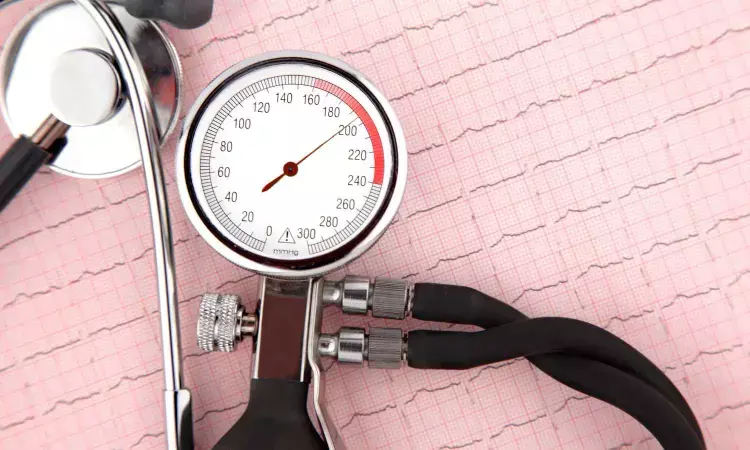- Home
- Medical news & Guidelines
- Anesthesiology
- Cardiology and CTVS
- Critical Care
- Dentistry
- Dermatology
- Diabetes and Endocrinology
- ENT
- Gastroenterology
- Medicine
- Nephrology
- Neurology
- Obstretics-Gynaecology
- Oncology
- Ophthalmology
- Orthopaedics
- Pediatrics-Neonatology
- Psychiatry
- Pulmonology
- Radiology
- Surgery
- Urology
- Laboratory Medicine
- Diet
- Nursing
- Paramedical
- Physiotherapy
- Health news
- Fact Check
- Bone Health Fact Check
- Brain Health Fact Check
- Cancer Related Fact Check
- Child Care Fact Check
- Dental and oral health fact check
- Diabetes and metabolic health fact check
- Diet and Nutrition Fact Check
- Eye and ENT Care Fact Check
- Fitness fact check
- Gut health fact check
- Heart health fact check
- Kidney health fact check
- Medical education fact check
- Men's health fact check
- Respiratory fact check
- Skin and hair care fact check
- Vaccine and Immunization fact check
- Women's health fact check
- AYUSH
- State News
- Andaman and Nicobar Islands
- Andhra Pradesh
- Arunachal Pradesh
- Assam
- Bihar
- Chandigarh
- Chattisgarh
- Dadra and Nagar Haveli
- Daman and Diu
- Delhi
- Goa
- Gujarat
- Haryana
- Himachal Pradesh
- Jammu & Kashmir
- Jharkhand
- Karnataka
- Kerala
- Ladakh
- Lakshadweep
- Madhya Pradesh
- Maharashtra
- Manipur
- Meghalaya
- Mizoram
- Nagaland
- Odisha
- Puducherry
- Punjab
- Rajasthan
- Sikkim
- Tamil Nadu
- Telangana
- Tripura
- Uttar Pradesh
- Uttrakhand
- West Bengal
- Medical Education
- Industry
Bedtime Dosing of Antihypertensives May Improve Nighttime BP Control in Hypertension: OMAN Trial

China: A recent large-scale, multicenter randomized clinical trial has provided new insights into the optimal timing of antihypertensive medication, suggesting that taking blood pressure-lowering drugs at bedtime may offer superior control of nocturnal blood pressure (BP) and help restore normal circadian rhythms in patients with hypertension.
Published in JAMA Network Open, the study, known as the OMAN (Optimal Medication Administration for Nocturnal blood pressure) trial, was spearheaded by Dr. Runyu Ye and a team of researchers from the Department of Cardiology at West China Hospital, Sichuan University, Chengdu, China. Conducted across 15 hospitals in China, the trial enrolled 720 adult patients diagnosed with hypertension. The recruitment period spanned from June 1, 2022, to April 30, 2024, with each participant being followed up for a total of 12 weeks.
The core objective of the study was to compare the effects of morning versus bedtime dosing of antihypertensive medication on nighttime BP and circadian rhythm. The participants—none of whom had received antihypertensive therapy in the two weeks prior to the study—were randomly divided into two groups: one receiving medication in the morning (between 6:00 and 10:00 am), and the other at bedtime (between 6:00 and 10:00 pm). All patients were prescribed a daily combination pill containing 20 mg of olmesartan and 5 mg of amlodipine. Dosage modifications were allowed at the fourth and eighth weeks, depending on ambulatory and office BP measurements.
The findings of the study were notable:
- At baseline, both groups had comparable BP levels measured over 24 hours, during daytime, nighttime, and in clinical (office) settings.
- After 12 weeks, patients who took their medication at bedtime experienced a significantly greater reduction in nighttime systolic BP (a mean decrease of −3.0 mm Hg) compared to those in the morning group.
- Nighttime diastolic BP also declined more in the bedtime group, with a mean reduction of −1.4 mm Hg.
- A higher proportion of patients in the bedtime dosing group achieved optimal nocturnal systolic BP control (79.0%) compared to the morning group (69.8%), pointing toward better circadian BP rhythm restoration.
- Importantly, bedtime dosing did not compromise BP control during the day or over the entire 24-hour period.
- The incidence of nocturnal hypotension was comparable in both groups, suggesting no increased safety risks associated with nighttime administration.
The researchers emphasized that nocturnal hypertension is often underdiagnosed and inadequately managed in clinical settings. By tailoring treatment to align with the body's natural biological rhythms—a concept referred to as chronotherapy—bedtime dosing may offer an effective, low-risk strategy to address this gap.
Commenting on the implications, the study authors stated, “The OMAN trial reinforces the therapeutic value of bedtime antihypertensive administration in improving nocturnal BP control and circadian alignment, without increasing adverse effects. This evidence may play a pivotal role in shaping future hypertension management strategies, especially in patients with inadequate nighttime BP regulation.”
These results highlight the potential for simple yet impactful adjustments in medication timing to enhance treatment outcomes in hypertension care.
Reference:
Ye R, Yang X, Zhang X, et al. Morning vs Bedtime Dosing and Nocturnal Blood Pressure Reduction in Patients With Hypertension: The OMAN Randomized Clinical Trial. JAMA Netw Open. 2025;8(7):e2519354. doi:10.1001/jamanetworkopen.2025.19354
Dr Prem Aggarwal, (MD Medicine, DNB Medicine, DNB Cardiology) is a Cardiologist by profession and also the Co-founder and Chairman of Medical Dialogues. He focuses on news and perspectives about cardiology, and medicine related developments at Medical Dialogues. He can be reached out at drprem@medicaldialogues.in


